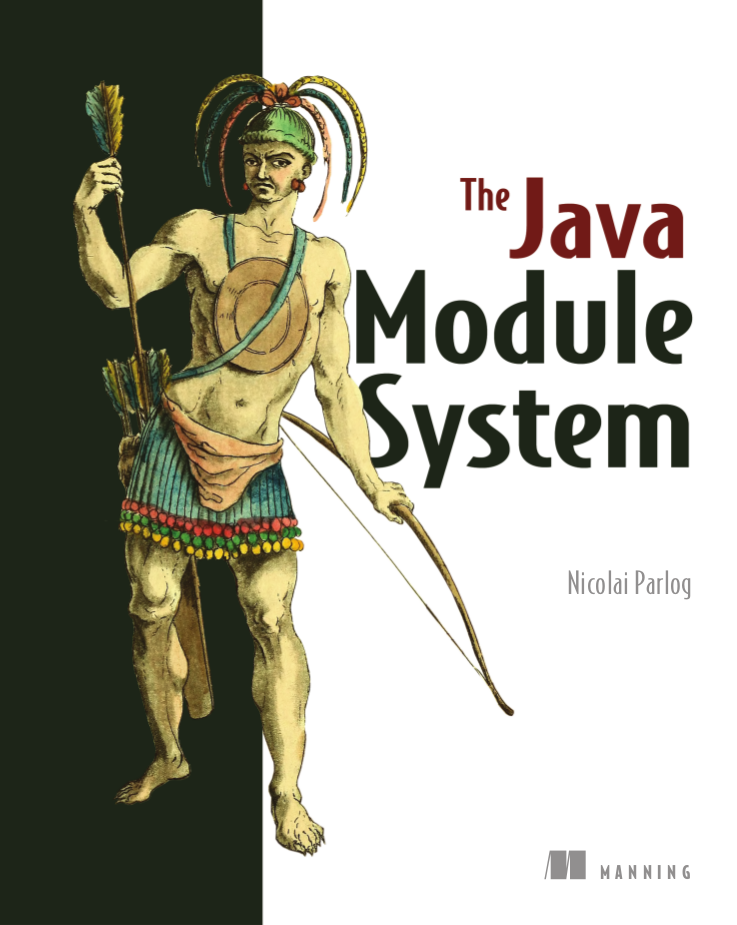public <T extends Closeable & Iterator<String>>
T createCloseableIterator(...) { ... }
public <E, T extends Closeable & Iterator<E>>
E firstMatch(T elements, ...) { ... }Fun with var
Lots to tinker with!
Rules of var |
| Intersection Types |
| Traits |
| Ad-hoc Fields And Methods |
Slides at slides.codefx.org.
Code at github.com/CodeFX-org/demo-java-x.
Fun with var
Rules of var |
| Intersection Types |
| Traits |
| Ad-hoc Fields And Methods |
Code
What About Readability?
This is about readability!
less redundancy
more intermediate variables
more focus on variable names
aligned variable names
Code
Style Guidelines
Principles from the official style guidelines:
Reading code is more important than writing it.
Code should be clear from local reasoning.
Code readability shouldn’t depend on IDEs.
Explicit types are a tradeoff.
Style Guidelines
Guidelines:
Choose variable names that provide useful info.
Minimize the scope of local variables.
Consider
varwhen the initializer provides sufficient information to the reader.Use
varto break up chained or nested expressions.Don’t worry too much about "programming to the interface".
Take care when using
varwith diamonds or generics.Take care when using
varwith literals.
Code
More on var basics
First Contact With
varIn Java 10
💻 tiny.cc/java-var / ▶ tiny.cc/java-var-ytcheat sheet (⇜ print when getting started!)
Fun with var
Rules of var |
| Intersection Types |
| Traits |
| Ad-hoc Fields And Methods |
Motivation
Sometimes you need a type
that implements two interfaces
without creating a new interface.
For example:
You need something
that is Closeable and an Iterator
without creating CloseableIterator.
Intersection types
Given two types, the intersection type
is the set of variables that are of both types.
An intersection type has the API of both types!
For example:
A variable of type Closeable & Iterator<E>
is both Closeable and an Iterator<E>.
It has close() and hashNext()/next()
Code
Intersection types
in method signatures, express with generics:
for variables use
var:var elements = createCloseableIterator(true); firstMatch(elements, ...);
Evaluation
Downsides:
combination of non-trivial Java features:
generics with bounded wildcards
type inference
refactoring becomes harder
But:
intersection types are known concept
can be really helpful in a bind
Add to tool box; use with care.
More on intersection types
I’ve written a blog post:
blog.codefx.org/java/intersection-types-var
Fun with var
Rules of var |
| Intersection Types |
| Traits |
| Ad-hoc Fields And Methods |
Motivation
Sometimes you need to attach
prepared functionality to an instance
without creating a new type.
For example:
You have a Megacorp instance and an
IsSuccessful-interface that you
want to attach to it.
Traits
A trait extends an interface
and implements additional behavior.
The language needs to offer a simple way
to "attach" that trait to an instance at hand.
Code
Traits
create a functional, delegating interface:
@FunctionalInterface interface MegacorpDelegate extends Megacorp { Megacorp delegate(); // implement `Megacorp` with default methods // by forwarding calls to `delegate()` }create traits as interfaces:
interface IsEvil extends Megacorp { default boolean isEvil() { return true; } }
Traits
cast lambda to desired intersection
and assign tovar-ed variable:var corp = (MegacorpDelegate & IsEvil) () -> original;
Evaluation
Downsides:
combination of non-trivial Java features:
lambda as poly expression
type inference
default methods
refactoring becomes harder
(see intersection types)delegating interface is cumbersome
breaks in collections (!)
Never use in "real" code!
More on traits
I’ve written a blog post:
blog.codefx.org/java/traits-var
Fun with var
Rules of var |
| Intersection Types |
| Traits |
| Ad-hoc Fields And Methods |
Motivation
Sometimes you need to extend a type
with a field or a method.
But not enough to create a new subtype.
Maybe with an anonymous class?
Anonymous class
new SimpleMegacorp(...) {
final BigDecimal SUCCESS_BOUNDARY =
new BigDecimal("1000000000000");
boolean isSuccessful() {
return earnings()
.compareTo(SUCCESS_BOUNDARY) > 0;
}
};Code
Ad-hoc fields & methods
create anonymous class with
additional fields and/or methodsassigned to
var-ed variable
var corp = new SimpleMegacorp(...) {
final BigDecimal SUCCESS_BOUNDARY =
new BigDecimal("1000000000000");
boolean isSuccessful() {
return earnings()
.compareTo(SUCCESS_BOUNDARY) > 0;
}
};
corp.isSuccessful();Evaluation
Downsides:
anonymous class is verbose (e.g. in stream)
combination of non-trivial Java features:
anonymous classes
type inference
impedes refactoring (!)
Prefer the alternatives!
Alternatives
Alternatives for ad-hoc fields:
Alternatives for ad-hoc methods:
extending base types
utility methods
traits
Records
What are records?
Upcoming Java language feature!
public record Range(int low, int high) {
// compiler generates:
// * constructor, deconstructor
// * equals/hashCode/toString
// * accessors low(), high()
}no boilerplate for plain "data carriers"
no room for error in
equals/hashCodemakes Java more expressive
Customized records
public record Range(int low, int high) {
// compiler knows signature and assigns to fields
public Range {
if (low > high)
throw new IllegalArgumentException();
}
public void setLow(int low) {
if (low > this.high)
throw new IllegalArgumentException();
this.low = low;
}
}Record trade-offs
The API for a record models the state, the whole state, and nothing but the state.
The deal:
give up encapsulation
couple API to internal state
get API for free
More on records
Developed under Project Amber:
led by Brian Goetz
launched March 2017
project / wiki / mailing list
More on records:
No known ETA; my guess:
not in 2019, likely not in 2020.
More on ad-hoc fields and methods
I’ve written a blog post:
blog.codefx.org/java/tricks-var-anonymous-classes
Summary
use
varto improve readability:right-hand side should be informative
variable name should be well-chosen
add more intermediate variables
tricks with
varare usually complex:may be worth it for intersection types
break
equals/hashCodefor traitsnot worth it for ad-hoc fields and methods
About Nicolai Parlog
Follow
💻 codefx.org
🐦 @nipafx
Want More?
Slides at slides.codefx.org
⇜ Get my book!
You can hire me:
training (Java 8-12, JUnit 5)
consulting (Java 8-12)


